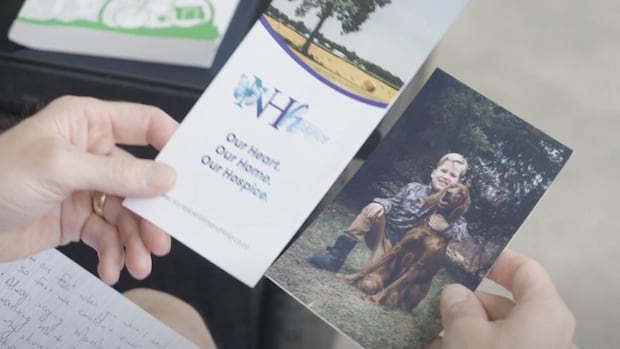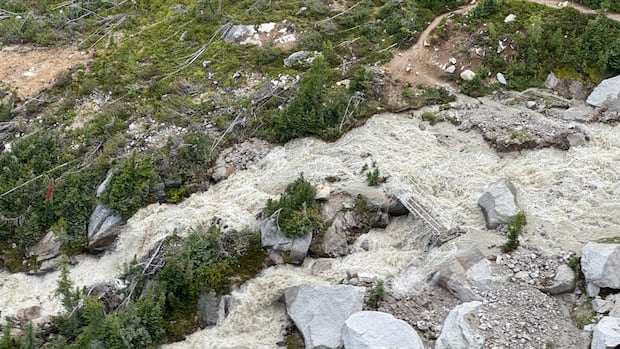James Mast, a Cree Sixties Scoop survivor, says he was making his way to Oklahoma so he could care for his ailing adoptive father when tribal police on the U.S. side of the Akwesasne reservation arrested him and turned him over to U.S. Border Patrol.
Mast, 60, has been held at the Clinton County jail in Plattsburgh, N.Y., which sits about 115 km southeast of Akwesasne, since his April 14 arrest by St. Regis Mohawk Tribal Police. He was detained after crossing the St. Lawrence River by boat and had no identification on him at the time.
Mast has so far spent six weeks in custody while U.S. immigration authorities determine whether to deport him to Canada.
“I want to get back home and I’m tired of this pressure that immigration and people put on saying that I am not American,” said Mast, in a telephone interview with CBC News from jail.
“I was raised in the States.”
Mast was initially charged with unlawful “re-entry by a deported alien,” but the charge was dropped by the assistant U.S. attorney because Mast is Cree, said Gabrielle DiBella, his appointed federal public defender.
“Being a Native American meant that he could not be prosecuted for illegally re-entering the country,” said DiBella in an interview with CBC News.
Under the 1794 Jay Treaty between the United States and Great Britain, a person with at least 50 per cent First Nations parentage may cross freely from Canada into the U.S. A First Nations person born in Canada can also legally live as a permanent resident with a green card in the U.S. if they register with the U.S. Citizenship and Immigration Service.
“I’ve never had a Native American prosecuted for illegal re-entry,” said DiBella.
DiBella said they’ve requested Mast’s adoption records from the government of Alberta which he was told could take four to six months to process and provide.
CBC News contacted U.S. Customs and Border Protection who referred questions to Immigration and Customs Enforcement (ICE) for comment. ICE did not respond to request for comment.
Taken from family twice
The Sixties Scoop was a period from the 1950s to the 1980s when thousands of Indigenous children were seized by provincial child-welfare agencies and adopted out to non-Indigenous families.
Mast was born James Cardinal in 1964 to Mary, who was Cree, and Edward Cardinal, a Métis. They were trappers living around Fort McMurray, Alta.
“My father was an alcoholic, so he’d take the pelts in and then leave my mom and us kids out on the trap line,” said Mast, who has three biological siblings.
Mast said when he was two-years old his mother fell ill and moved in with her sister, who called child welfare services.
“Welfare came and picked us up and took us away,” he said.
He was bounced between foster homes and abused until Moses and Sadie Mast, a Mennonite couple, adopted him and took him to Spencer, Okla., when he was six years old, said James Mast.
He said he reconnected with his biological mother when he was 16 after hitchhiking from Oklahoma City to Anzac, Alta. But he went back to Oklahoma, to his adoptive parents, who he considers his real family.
“That’s the only family I have,” said Mast.
While building hog farms in the mid-1990s in Missouri, Mast ran into trouble with the law, according to state court records. Mast said he was convicted of assaulting a police officer and served 17 years in prison. After his release and shortly after arriving back home to Oklahoma, U.S. immigration authorities swooped in to arrest him.
He said he still remembers seeing his adoptive mother Sadie Mast weeping as they took him away.
“I told her, don’t worry, I’ll be all right, I’ll come back again one day,” said Mast. “She passed away before I made it. It’s just been an ongoing frustration. It made me angry.”

Mast was sent to immigration detention in Dallas and deported to Calgary in 2010, according to U.S. court records. His adoptive parents never made him a U.S. citizen and Mast said he didn’t know how to fight the deportation. He said he stayed for about a day at the Calgary airport before heading to a city homeless shelter, the beginning of an itinerant life in Canada.
He was in and out of jails and shelters, while accumulating convictions for things like armed robbery, thefts and assaults.
Mast said he ended up drifting to Hamilton and then to Cornwall, Ont., about six years ago where he found work as a mechanic.
During his time in Cornwall, Mast said he met people from Akwesasne, the Haudenesaunee territory that sits across the St. Lawrence River from the small city. Mast said he crossed the river by boat on April 13, jumped out on the southern shore and hid out in a wooded area overnight.
Family waits for him
The next day, Mast said he was walking through the community, trying to figure out how to continue his journey to Oklahoma when he was stopped by tribal police who later reported to U.S. Border Patrol that he was intoxicated.
“They lied, and that’s what always gets me in trouble, that’s why I get mad at the police, because they lie,” said Mast.
“How can they say I was intoxicated? They didn’t take no breathalyzer…. As a matter of fact, I don’t drink.”
He said they arrested him after he slammed his hand on the trunk of the police cruiser.
“I said, ‘There, now you can arrest me,'” said Mast during the telephone interview with CBC News.
Mast said he just wants to get home and take care of his adoptive father. It still pains him that he wasn’t there when his adoptive mother died.
“I figure it’s time to get back home and take care of him, like he took care of me when I was younger,” he said.
“He needs me there.”
Mast’s father is in his late 80s, suffers from dementia and is currently in an assisted living care home, said Bonnie Bellah, James Mast’s cousin.
Bellah has taken over the primary caregiving role for Moses Mast. She said the family is aware that James Mast is in custody and would welcome his return.
“We would all embrace him,” said Bellah, in a telephone interview from Spencer, Okla.
“We love him and we want the best for him. It’s a hard situation, he is adopted, but he is family and family is very important.”






